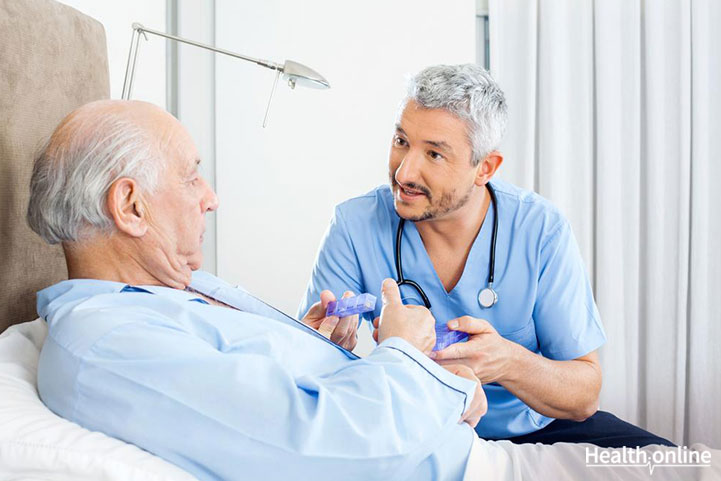
What You Need to Know about Pneumonia and Older People
Seniors are susceptible to pneumonia as their immune system is not strong like before. But pneumonia can also be dangerous if the diagnosis and treatment are not timely done.
Recommended Read: Walking pneumonia – Introduction, symptoms, and home remedies
Dangers of Pneumonia in Older People
Pneumonia carries a risk for people in all age groups . Pneumonia in elderly can be particularly dangerous as it can weaken the immune system. Pneumonia can cause complications such as low blood pressure and kidney problems. If seniors plan to use any implanted medical devices, these can become infected too. Pneumonia caused by bacteria can be specifically dangerous for seniors as it can cause meningitis or lung damage. Seniors also suffer from many health problems, which can increase their risks of contracting pneumonia. These conditions can be Parkinson’s disease, diabetes, asthma or cystic fibrosis. Alcoholism and nursing home stays can also increase chances of infections for the elderly.
Symptoms
The pneumonia symptoms in seniors can vary depending on the nature of the infection (bacterial or viral). But common symptoms are fever, chills, coughing, lethargy, difficulty breathing, nausea, wheezing and headache. Bacterial infections can cause symptoms like high fever, increased heart rate, and excessive sweating. Viral infections can lead to symptoms such as muscle pain, weakness, dry cough, fever, and fatigue.
Recommended Read: Risk Factors and Symptoms of Pneumonia
Treatment
The treatment for pneumonia in elderly may depend on the nature of the infection. The doctor may conduct a few tests to diagnose the infection. These can include blood tests, CAT scans, bronchoscopy and other diagnostic measures. Depending on the severity of the infection, the doctor will prescribe medicines and recommend a treatment course. The doctor will most likely prescribe antibiotics for bacterial infections. But for viral infections, generally, other measures such as more fluids, rest, fever medicines, pain relievers, anticoagulants, oxygen therapy, observation, and hospitalization are some considerations. Pneumonia requires constant observation to ensure there are no complications.
Recovery time for pneumonia can depend on the infection severity and the effectiveness of the treatment course. The doctor may change pneumonia treatment plan or medicines if the condition doesn’t improve in a few days. If someone is resistant to antibiotics, it can be difficult to treat bacterial infections properly. In such cases, doctors determine the course of action after assessing improvements in the symptoms or worsening of the condition. It is important that people complete their antibiotics course as stopping it early can cause antibiotic-resistant and impact future treatment plans.
Prevention and Care
It can be difficult to prevent pneumonia in elderly due to poor immunity. But they can take certain precautions to reduce the risks of contracting infections. Pneumococcal vaccine is effective against preventing bacterial infections. If seniors are susceptible to flu, it can increase their chances of contracting pneumonia as a complication. Vaccine for influenza may be helpful in this case.
Seniors can do a lot more to prevent pneumonia. Proper hand and dental hygiene reduce risks of infections. Eating well and adequate rest are also important to keep the body strong enough to resist infections. Seniors can also include more fresh vegetables and fruits in their diets to boost their strength and immunity. Citrus fruits are excellent to ward off infections and strengthen the immune system.
Recommended Read: Side Effects and Contradictions to Pneumonia Vaccine
Seniors must also avoid direct contact with anyone with viral or bacterial infections. When seniors contract pneumonia, it is absolutely vital that they see a doctor immediately. During pneumonia, it is important that they increase their fluid intake and take all medicines diligently.
Keep yourself updated with the latest on Healthy Aging . Like us on Facebook and follow us on Twitter for more on Health , Diet & Nutrition and Fitness . Also, check out our Health Tools and try out our health-related Quizzes .




